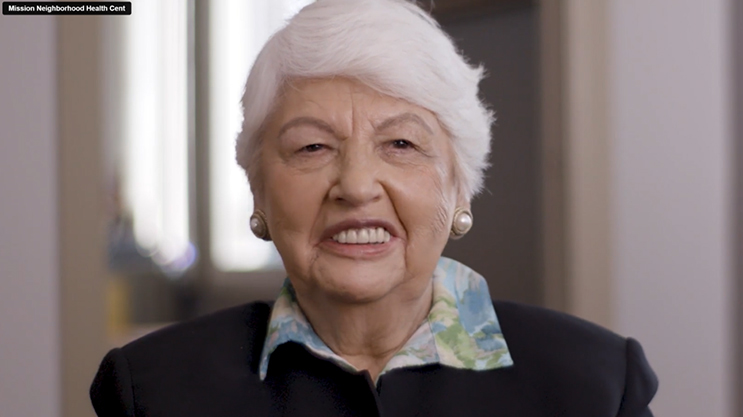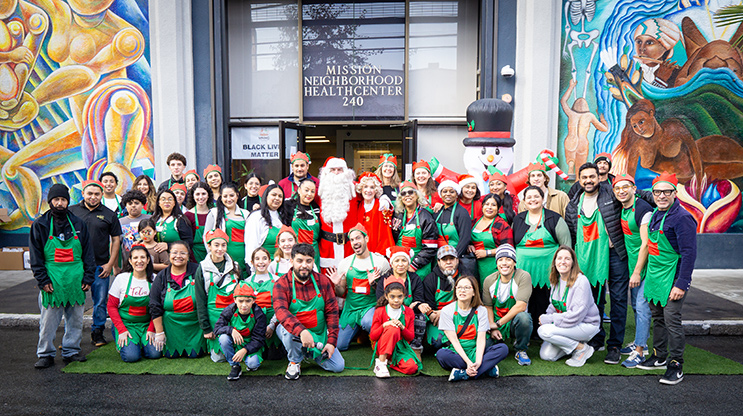February 26, 2015
Local Leaders Join Together to Help Immigrant Children: The Alero Project
 In late 2013, the number of unaccompanied minors entering the U.S. surged. While this influx has proved controversial for some, many local leaders have responded with compassion and concern.
In late 2013, the number of unaccompanied minors entering the U.S. surged. While this influx has proved controversial for some, many local leaders have responded with compassion and concern.
Mission Neighborhood Health Center (MNHC) has responded to this humanitarian crisis by joining The Alero Project, a program that promotes the psychological and social wellbeing of unaccompanied children who are fleeing escalating violence in their region.
The Alero Project launched in November 2014 with the support of MNHC and the University Of San Francisco School Of Nursing and Health Professions. The program provides written psychological evaluations for immigration hearings and no-cost psychosocial and health services to unaccompanied minors who have recently arrived to the Bay Area. [1]
 Manuel Arredondo, Alero’s project coordinator, who previously worked as MNHC’s clinical coordinator at Casa Quezada, a housing program for homeless immigrants, chose the name “Alero” because of its special meaning. Alero means arrow, often used in countries, such as El Salvador to refer to a trusted friend. “I wanted the children in our program to hear something familiar” he said.
Manuel Arredondo, Alero’s project coordinator, who previously worked as MNHC’s clinical coordinator at Casa Quezada, a housing program for homeless immigrants, chose the name “Alero” because of its special meaning. Alero means arrow, often used in countries, such as El Salvador to refer to a trusted friend. “I wanted the children in our program to hear something familiar” he said.
Manuel and researcher Karla Murcia conceived of the program as students at University of San Francisco based on the curriculum and guidance from professors. As the number of unaccompanied minors entering the US increased, Manuel felt the need for Alero was urgent.
“The Alero Project is about the kids, and how we can focus on alleviating their suffering. We are figuring it out as we go, but it is possible to deliver mental health services under these circumstances,” Manuel stressed. Many of the children in the program are dealing with the residual effects of war, family violence, drugs, gang violence, and abuse in detention. The Alero Project and its clinical team help these children and their families receive the best resources and psychological support available to them.
Currently, the program serves 18 minors who are receiving mental health counseling with ages ranging from 8 to 19 years old. The program provides services that include assessments and evaluations for any mental health issues, statements and transcriptions for court, psychotherapy, linkage and referrals to other resources, and consultations to those helping children who have experienced trauma due to violence in Central America.
 Julie McDevitt, MNHC’s behavioral health coordinator since 2013, joined Manuel‘s team and serves as a behavioral health clinician. Previously a mental health counselor at Clínica Esperanza (MNHC’s HIV clinic) from 1995 to 2000, Julie was eager to help provide mental health services to immigrating children and their families .
Julie McDevitt, MNHC’s behavioral health coordinator since 2013, joined Manuel‘s team and serves as a behavioral health clinician. Previously a mental health counselor at Clínica Esperanza (MNHC’s HIV clinic) from 1995 to 2000, Julie was eager to help provide mental health services to immigrating children and their families .
It’s not unusual to find Julie and Manuel in the health center late at night or traveling to cities in the Bay Area to conduct site visits with patients and their family members who need more assistance.
“It’s not just about mental health; we are responsive to many of the needs of the minors and their families,” said Julie. “Many of these children arrive and don’t have a connection with their parents. Their parents may feel that they have a connection but the children, who have endured traumatic experiences, have to rebuild a connection with their families.”
In addition to coping with the effects of trauma, the legal process for these minors is a long and intimidating experience. Many of the minors the program assists do not realize the impact of their traumatic experiences. The mental health services provided are critical in helping them discuss and process their traumatic experiences. The immigration process can be very intimidating rendering these mental health services vitally important to help minors prepare to explain their experience to a judge during a court hearing.
The efforts of The Alero Project have already reaped positive result with Manuel and Julie seeing progress with even just 2-3 meetings with children and their families.
The program hopes to collaborate with other community agencies to connect these children and their families with the right resources. Additionally, the clinical team is in the process of connecting MNHC patients to the program to set up a two-way connection between The Alero Project and the health center.
“We hope to set an example for health care providers to assertively outreach to clients,” said Manuel. “This is what it looks like when a community gets together to help the most vulnerable.”
If you’d like to help The Alero Project team, are in need of a consult, or know someone who may benefit from these services, please contact:
Manuel Arredondo, LCSW
The Alero Project
aleroproject@gmail.com
(415) 471-6175
[1] http://aleroproject.tumblr.com/
[3]http://www.acf.hhs.gov/programs/orr/unaccompanied-children-released-to-sponsors-by-county



